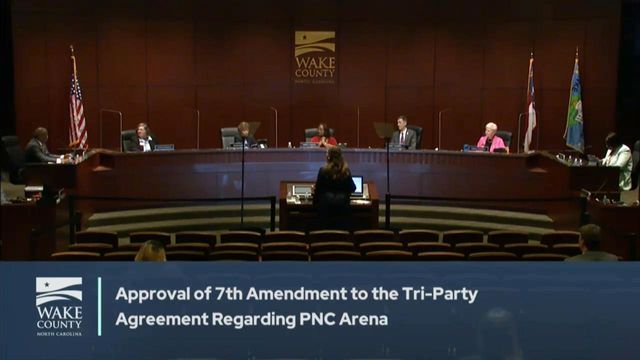Senate health care plan prompts questions, concerns
The U.S. Senate's proposed overhaul of the nation's health care system is relatively similar to the Affordable Care Act is aims to replace, according to experts, but where there are changes, they are drastic.
The 142-page bill, which was crafted by a handful of senators behind closed doors and could be voted on less than a week after being unveiled publicly Thursday. repeals the mandates requiring individuals to have health insurance and most employers to provide coverage to their workers. States would be required to accept patients with pre-existing conditions, but they could ask to reduce coverage to them. Planned Parenthood would not be funded for one year.
Many people in the Triangle were trying to determine the potential impact if the plan becomes law, and most have plenty of questions and concern.
Patricia and Michael Anderson of Cary purchased insurance on the HealthCare.gov exchange. He has a blood cancer, multiple myeloma, and his chemotherapy pills cost $1,300 a day.
"My husband’s life depends on insurance," Patricia Anderson said. "If our insurance would be done away with, we wouldn’t have the chemotherapy."
Brendan Riley, a policy analyst with the North Carolina Justice Center, a left-leaning advocacy and research organization, said the Senate proposal, like the plan the U.S. House passed last month, could leave about a million North Carolinians without insurance.
"We hear every day from cancer survivors, from moms whose children are medically fragile and have complex health care needs who are so concerned about what this bill will do," Riley said. "We'll see some of the same problems we saw before the ACA, where hospitals and health care providers were struggling to provide uncompensated care for the uninsured population, and for those who are uninsured, we know they delay getting care because they can't afford it."
Republican U.S. Sen. Richard Burr of North Carolina said the legislation offers many benefits to North Carolina, from stabilizing the health insurance market to strengthening Medicaid to providing more funding to address opioid addiction.
"While not perfect, the bill does provide the funding we need to support our most vulnerable North Carolinians. I’m encouraged that it keeps the law protecting people with pre-existing conditions," Burr said in a statement.
Meanwhile, U.S. Sen. Thom Tillis said he wants to review the proposal more.
"As I’ve said repeatedly, any replacement plan must be a net improvement over 'Obamacare,' and I look forward to carefully reviewing the draft legislation over the next several days," the North Carolina Republican said in a statement.
North Carolina Gov. Roy Cooper quickly panned the plan as unworkable and called on Burr and Tillis to oppose it.
"Health care should be affordable and accessible, but this new Senate plan, like the House bill before it, does the opposite," Cooper said in a statement. "This Senate plan especially hurts children, seniors and the disabled, and it dumps more of the cost of health care on state taxpayers."
The North Carolina Hospital Association and AARP also came out against the plan.
"The proposal punishes North Carolina for being prudent with Medicaid funds and provides no support for North Carolina’s uninsured population," hospital association spokeswoman Julie Henry said in a statement. "NCHA recognizes that the Affordable Care Act needs improvement and will continue to ask our senators to develop a plan that ensures North Carolinians have access to coverage and assures our ability to provide care to all."
The Senate proposal eliminates a controversial House provision – critics dubbed it an "age tax" – that would greatly increase costs for older Americans who need subsidies to pay for medical coverage. The Senate bill ties subsidies to income rather than age, but it makes it harder for people to qualify for the subsidies by tightening the income requirements.
"The design of the plan will likely result in higher health care costs for older and sicker patients," AARP North Carolina said in a statement.










